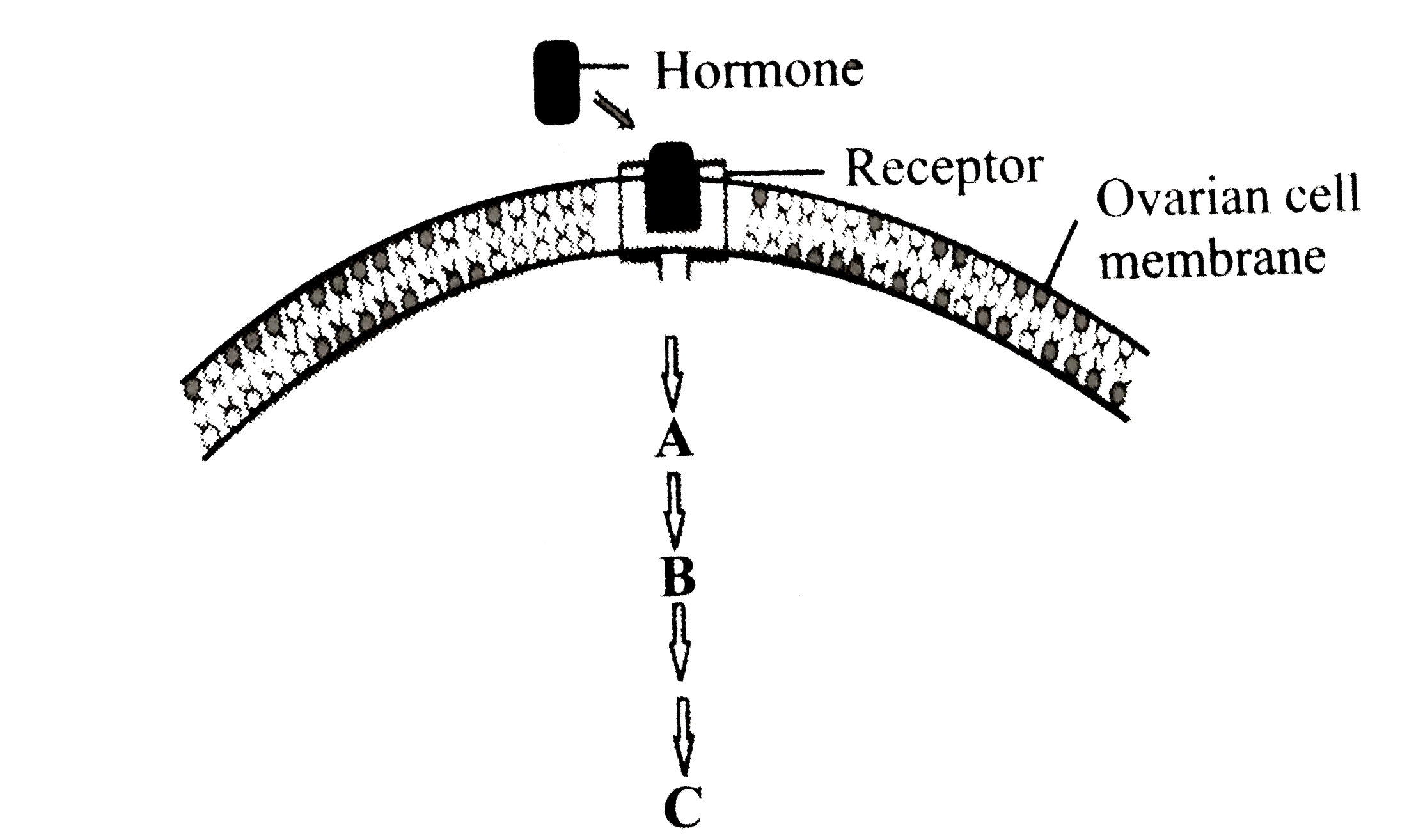In the mechanism of action of a protein hormone, one of the second messengers is
cyclic AMP
insulin
T3
gastrin.
The correct Answer is:A
To solve the question regarding the second messenger in the mechanism of action of a protein hormone, we can follow these steps:
1. Understanding Protein Hormones:
- Protein hormones are large molecules made up of amino acids, such as peptides and proteins. They are generally insoluble in lipids.
2. Mechanism of Action:
- Due to their size and solubility properties, protein hormones cannot penetrate the cell membrane to enter the target cell. Instead, they act on the cell surface.
3. Binding to Receptors:
- Protein hormones bind to specific receptor molecules located on the cell membrane of the target cells. This binding initiates a cascade of intracellular events.
4. Role of Second Messengers:
- The binding of the hormone to its receptor leads to the generation of second messengers within the cell. These second messengers amplify the signal and lead to the desired cellular response.
5. Examples of Second Messengers:
- Common second messengers include cyclic AMP (cAMP), inositol trisphosphate (IP3), and calcium ions (Ca²⁺).
6. Evaluating the Options:
- Given the options:
- Option 1: Cyclic AMP
- Option 2: Insulin
- Option 3: T3
- Option 4: Gastrin
- Among these, cyclic AMP (cAMP) is a well-known second messenger involved in the signaling pathways of protein hormones.
7. Conclusion:
- Therefore, the correct answer to the question is Cyclic AMP (Option 1), as it is one of the second messengers generated in the mechanism of action of protein hormones.
- Protein hormones are large molecules made up of amino acids, such as peptides and proteins. They are generally insoluble in lipids.
- Due to their size and solubility properties, protein hormones cannot penetrate the cell membrane to enter the target cell. Instead, they act on the cell surface.
- Protein hormones bind to specific receptor molecules located on the cell membrane of the target cells. This binding initiates a cascade of intracellular events.
- The binding of the hormone to its receptor leads to the generation of second messengers within the cell. These second messengers amplify the signal and lead to the desired cellular response.
- Common second messengers include cyclic AMP (cAMP), inositol trisphosphate (IP3), and calcium ions (Ca²⁺).
- Given the options:
- Option 1: Cyclic AMP
- Option 2: Insulin
- Option 3: T3
- Option 4: Gastrin
- Among these, cyclic AMP (cAMP) is a well-known second messenger involved in the signaling pathways of protein hormones.
- Therefore, the correct answer to the question is Cyclic AMP (Option 1), as it is one of the second messengers generated in the mechanism of action of protein hormones.
Topper's Solved these Questions
Similar Questions
Second messenger is
View SolutionSome hormones need the secondary messenger because
View SolutionExplain the mechanism of action of enzyme.
View SolutionWhich one is a protein hormone
View SolutionRefer to the given diagrammatic representation of the machanism of action of a protein hormone.

In which of the following options correct labelling of A,B and C is given?
View SolutionGive the mechanism of the action of carbon monoxide.
View SolutionIllustrate the diffrences between the mechanism of action of a protein and a steroid hormone.
View SolutionThe mechanism of action of a steroidal hormone on target cell is established through the
View SolutionWhich of these hormones uses cAMP as a second messenger ?
View SolutionExplain the mechanism of action of T cells to antigens.
View Solution
